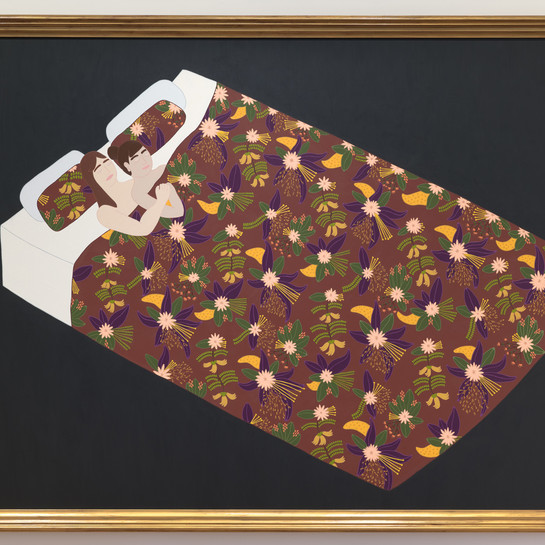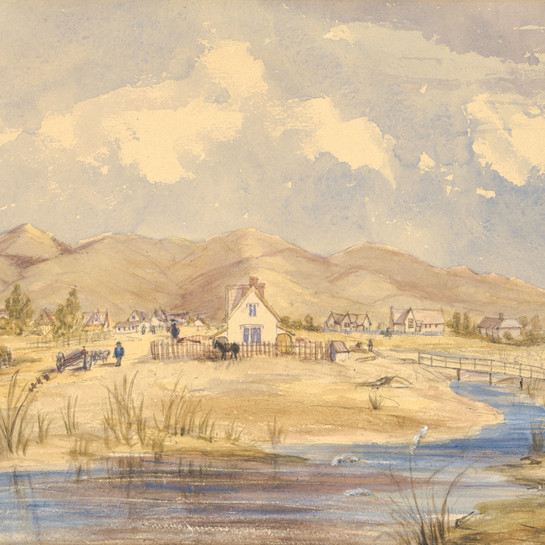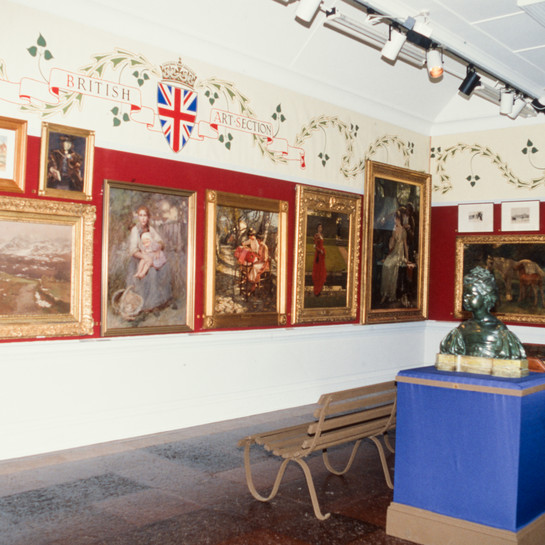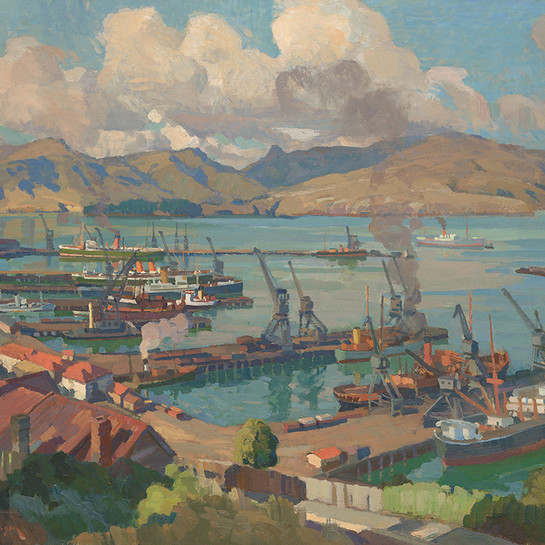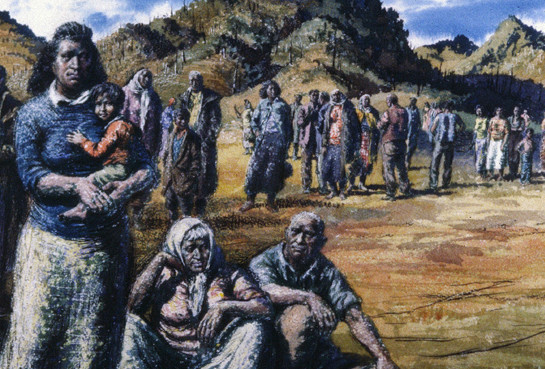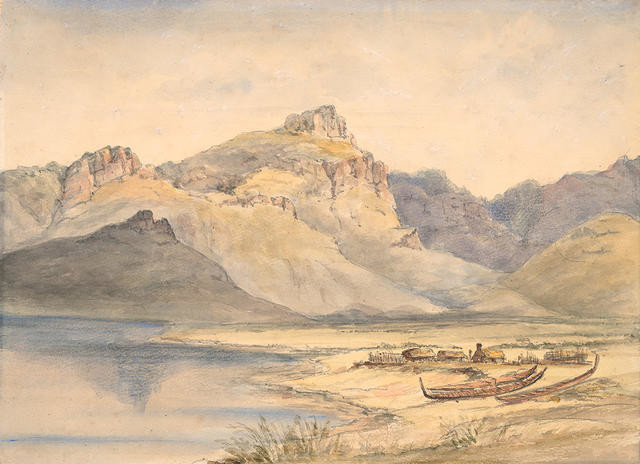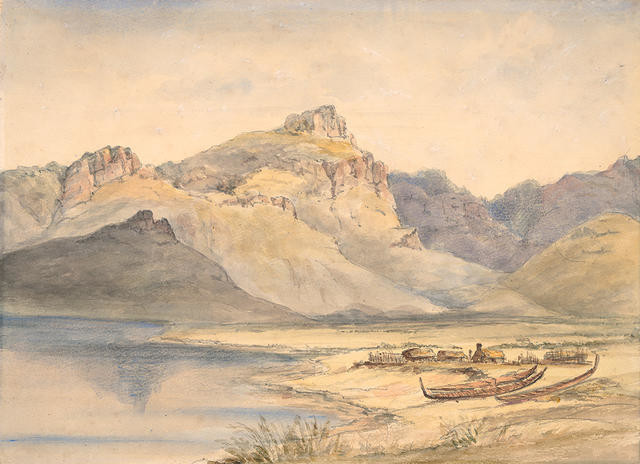Richard Aldworth Oliver
British, b.1811, d.1889
The Māori Settlement, Purau Bay, Port Cooper
- 1850
- Watercolour
- Purchased with assistance from the Olive Stirrat Bequest, 1983
- 260 x 380mm
- 83/49
- View on google maps
Tags: bays (bodies of water), boats, landscapes (representations), Māori (culture or style), mountains, natural landscapes, seas
Richard Aldworth Oliver was commander of the British Navy’s HMS Fly in Aotearoa New Zealand in the service of Governor George Grey. Stationed here from 1847 until 1851, his duties included conveying Grey and his officers on missions to Māori settlements. He also made watercolour records of the places and people visited.In June 1848, aboard the Fly, Oliver was a witness to the signing of the shameful Kemp’s Deed, or Canterbury Purchase, which saw the iwi (tribe) Ngāi Tahu forced to accept two thousand pounds in exchange for nearly five and a half million hectares of land, leaving the iwi with a little over two and a half thousand hectares – less than 0.05 per cent. In December 1850, not far from the pictured settlement at Purau in Te Whakaraupō / Lyttelton Harbour, Oliver oversaw the arrival of the first Canterbury Association colonists.
(Te Wheke, 2020)
Exhibition History
Pickaxes and shovels,17 February – 5 August 2018
This watercolour was completed shortly after the Port Cooper Deed had been signed between local Māori rangatira (chiefs) and the Crown, represented by Walter Mantell, after weeks of bitter wrangling between the parties. Even before the Deed had been signed by Kāi Tahu (the local Māori iwi or tribe) in August 1849, the land had been surveyed and reserves allocated. The rangatira Nohomutu and his whānau (family) at Purau were allocated just nine acres with all the gardens beyond the reserve to be abandoned after the present crops had been harvested. A few weeks later, Mantell told the Māori chiefs at Whakaraupō / Lyttelton Harbour that any who refused to accept the Crown’s offer of just £200 would have no claim on the reserves.
Picturing the Peninsula, 21 April - 22 July 2007
Purau lies on the southern shore of Lyttelton Harbour / Te Whakaraupō (also named Port Cooper prior to 1858). Purau along with Rapaki was one of the main areas of Maori settlement in Lyttelton Harbour. At the time of Oliver’s depiction the Māori fishing settlement had around 10 inhabitants. Throughout the 1820s and 30s the Peninsula Ngai Tahu population had been devastated by tribal in-fighting and raids from the north led by the Ngati Toa Chief Te Rauparaha.
Richard Oliver entered the Royal Navy in 1825 and was given command of the HMS Fly in 1847. The HMS Fly oversaw the arrival of the Canterbury Association settlers at Lyttelton in December 1850.
